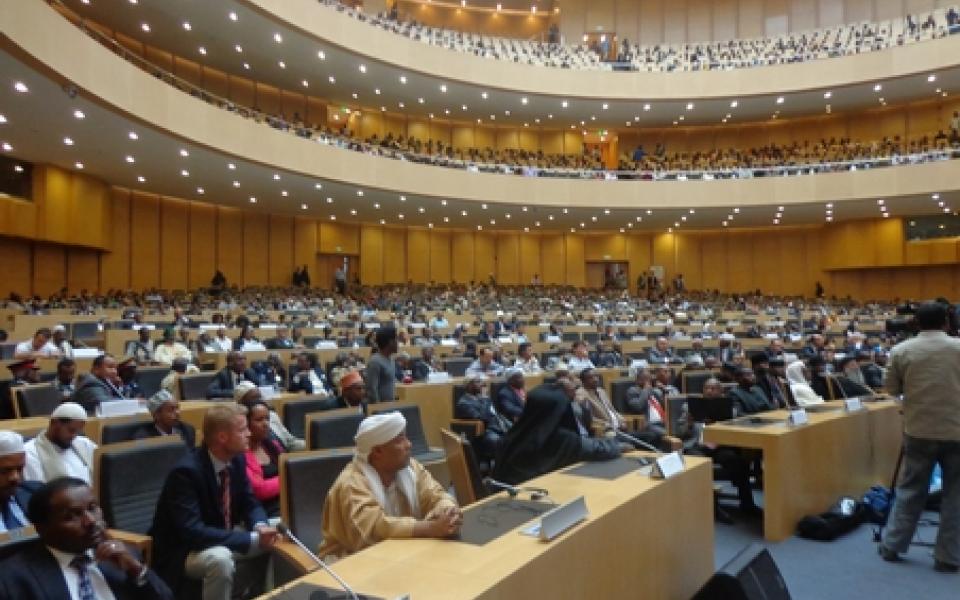
URI Africa’s continuous advocacy for peace education in Africa finally makes headway with URI Africa’s participation at the International Expert Meeting on promoting a culture of peace and non-violence in Africa through education for peace and conflict prevention.
For sometime now, URI Africa has been promoting the need for peace education in the regional school curriculum, with the belief that peace education empowers students with the knowledge, skills, mindset and values necessary to end violence and injustice, as well as to promote a culture of peace.
URI Africa has appealed to member states of the African Union and the United Nations to include peace education in their national education policy. Last year, Ambassador Mussie Hailu, Continental Coordinator for Africa, met with senior experts from UNESCO at their headquarters to speak with them about URI’s fieldwork. Mussie also expressed URI’s interest to continue working closely with UNESCO in fostering and achieving a culture of peace and non-violence through education.
Owing to their efforts and growing partnership with UNESCO, URI Africa was invited to partake in the International Experts Meeting on promoting a culture of peace and non-violence in Africa through education for peace and conflict prevention, which was held in Addis Ababa last month, June 18th and 19th. Representatives and education ministry experts from Angola, Mozambique, Ethiopia, Kenya, Cote d`Ivoire, and Somalia were in attendance, as was the Africa Regional Director of University for Peace and Representative of African Union.
The overall objectives of the meeting are to:
- Strengthen content of technical guidelines and capacity development modules (for education policy makers policy) in relation to education for peace and conflict prevention.
- The two-day international consultative meeting will provide an opportunity to drawn on the expertise of key regional and international education professionals to inform the ongoing development of the technical guidelines and capacity development modules. It will also provide an opportunity to gather suggestions on the development of additional resources such as a compendium of good practice.
In addition, the meeting aimed to:
- Provide a forum for exchange of on the role of education in promoting peace and conflict prevention
- Review current education policy and practice in education for peace and conflict prevention (outlined in mapping)
- Identify gaps and obstacles to the inclusion of peace education in national education policy and programming and explore opportunities for the inclusion of peace education in national policies and plans
- Understand the modalities and resource requirements of including peace education in national education sector plans
- Discuss the role of UNESCO and international cooperation in this area
With such realistic goals set by the representative and expert attendees, peace education is finally receiving the backing it needs to become a valuable and vital addition to African states’ education policy.
